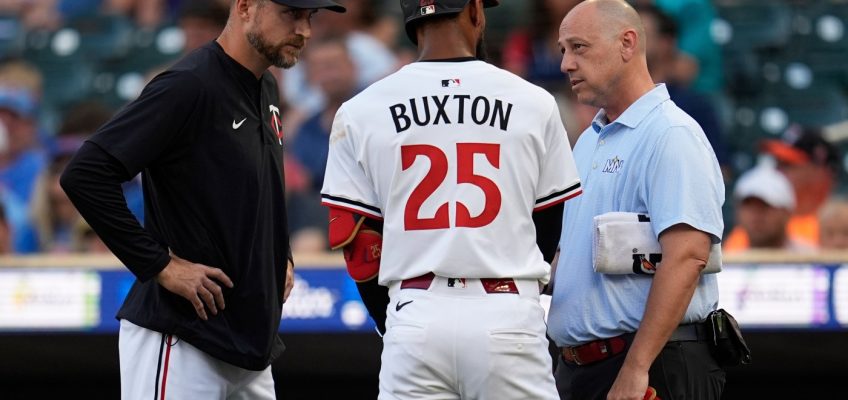Within the hearts and faces of the Class of 2025 is a mixture of anticipation and apprehension — on the edge of a world that is, by turns, irreverent and weary, defiant and desperate for something more. These are not gentle times. Our society, economy, and politics all feel stretched and fraying, sometimes broken. But that, my friends, is precisely why you are yet alive and must live free!
Every generation is confronted and confounded by choice. Some choose complacency — seduced by comfort and the illusion that someone else will do the hard work of changing things.
Others, the rare ones, decide to become prophets and revolutionaries. Not the kind who burn it all down for the sake of spectacle but those who dare to see what isn’t yet and speak it into being. Those brave enough to confront the world’s irreverence with a stubborn, civil audacity.
Leadership, in these times, demands a prophetic imagination. That means you must learn to see beyond what’s obvious or easy. It means naming the wounds no one wants to touch and calling out the truths that make the comfortable squirm. It means refusing to settle for the world as it is — a world blighted by division, distraction and cheap cynicism. Instead, you must insist on the world as it could be and start living out that vision now, even when it isn’t popular or costs you something.
Don’t get it twisted. Prophecy absent of civility is just noise. It’s too easy — far too easy — to allow righteous anger to curdle into bitterness, to imagine that because you are right, you are justified in scorning, shaming, or silencing those who differ. That is not the way of moral leadership. To start a revolution that endures, you must learn to build bridges and barricades. Each of us must master the art of disagreeing without dehumanizing. Humane practice is radical empathy that listens even when you long to shout and to forgive when you are aching to rage.
Undeniably, you’ve come of age when the air is thick with suspicion and contempt. Your generation has been confined from quarantine and by the glare of your screens as a pandemic exposed the cracks in our society. You’ve endured leaders bickering over scraps of power while real people suffered — hungry, scared, unseen.
Likewise, your peers and you marched, maybe mourned, or wondered whether this could change. However, the world is not waiting for someone else. We are waiting for you. And we do not need you to fall in line nor mimic the failings of those who’ve come before. The world is waiting for leaders like you to be bold enough to speak with your voice — sharpened by truth, softened by grace, and animated by the unyielding conviction that we can do better and are destined to do better.
The American project is a patchwork of dreamers and doers, saints and sinners, stitched together by the thread of promise that stretches across generations. What began as a wild experiment — equal parts hope and hubris — has always depended on the willingness of ordinary people to imagine something better and then actually try to build it.
Each generation inherits the job half-finished, with frayed edges and glaring mistakes. Approach the task with a stubborn sense that it’s worth mending. Now, that group project lands in your lap. Your generation gets to decide if democracy is still alive, still pulsing with possibility, or if it’s just a story people tell themselves — something dusty and ceremonial, trotted out for parades but hollow at the core. The choice isn’t abstract. It’s the lived reality of who speaks, listens, and gets heard.
So, what will moral and democratic revival look like when the ground beneath is unsteady?
Even when your voice shakes and courage escapes you to name injustice, genuine humility allows you to learn from challenges to your assumptions. Refuse the seduction of easy answers and shallow applause. May the love of neighbor inform your every thought, action, innovation, vote, and prayer. I implore you: Do not wait for perfect conditions, unanimous approval, or the blessing of the powerful.
Take up your duty. Build a beloved community not by shouting down your adversaries but by calling them in and insisting that their humanity is tangled up with yours, whether they like it or not.
Help heal the nation by holding up your corner and mending your block. Bring about justice by treating the most overlooked preferentially. Model peace through the endurance of discomfort and earnest engagement in reconciliation. Lead by showing up, standing firm, getting up, and trying again when falling short.
The world is crowded, noisy, and sometimes hostile. Yet, it remains open for the kind of distinct light only you possess. I encourage you to write your name in ink so it won’t fade in this chapter of history. Go forth with leadership that is sermon and song. Be bold! Be compassionate! Be prophetic! Be civil! Making your way in the world today takes everything you’ve got. Moreover, it is your duty.
The Rev. Dr. F. Willis Johnson is a spiritual entrepreneur, author, scholar-practioner whose leadership and strategies around social and racial justice issues are nationally recognized and applied. He wrote this for The Fulcrum, a nonprofit, nonpartisan news platform covering efforts to fix our governing systems.
Related Articles
Allison Schrager: America’s broken politics is breaking economics, too
Ross Douthat: Conservatives are prisoners of their own tax cuts
Barnett, Kristof: It isn’t freedom if it’s not for everyone
Thomas Friedman: How Trump’s ‘big beautiful bill’ will make China great again
Kristof, Barnett: The quiet girls’ revolution in west Africa




